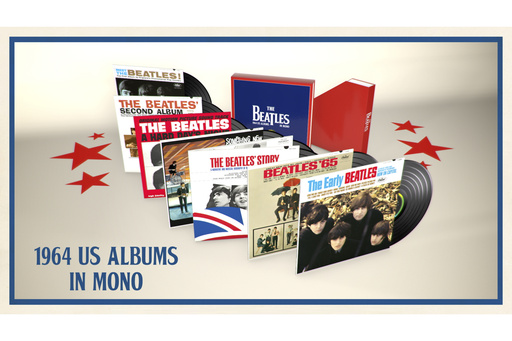
NEW YORK — For many, the unforgettable images of The Beatles’ performance on “The Ed Sullivan Show” come to mind when recalling the band’s iconic 1964 U.S. visit. However, there are other rare moments to cherish, such as Paul McCartney happily feeding seagulls from his hotel balcony. These candid snippets, alongside George Harrison and John Lennon playfully swapping jackets, are featured in the new Disney+ documentary “Beatles ’64,” which provides an intimate glimpse into the English band’s inaugural trip to the United States. The film streams starting Friday.
According to producer Margaret Bodde, who collaborated with Martin Scorsese on the project, the documentary offers a unique opportunity to observe these genuine interactions. “It’s such a joy to experience these private moments as if you are a fly on the wall,” Bodde remarked. “Thanks to technological advancements, we can revisit this extraordinary time without the decades distorting the experience.”
“Beatles ’64” heavily relies on super-8 footage captured during the 14-day excursion by documentarians Albert and David Maysles, who documented 11 hours of the Beatles’ playful antics while staying in New York’s Plaza Hotel and during their travels. This footage underwent restoration at Park Road Post in New Zealand, preserving the essence of that vibrant era.
Director David Tedeschi emphasizes the beauty of the material despite its black-and-white format. “Although it’s not in widescreen, it feels as fresh as if it were filmed yesterday,” Tedeschi expressed. “It encapsulates the youthful exuberance of the Beatles and their fervent fans.”
To enrich the documentary, interviews with the two surviving members of the band, along with individuals whose lives were shaped by Beatlemania, have been incorporated. This includes comments from women who, as teenagers, stood by the hotel entrance, yearning for a glimpse of the iconic group.
“It was a wild infatuation,” recalls fan Vickie Brenna-Costa in the documentary. “I find it hard to explain now, but at that time, it felt so natural.”
The film captures the charm of the four stars, showing them dancing and flirting at the Peppermint Lounge disco, while showcasing Harrison experimenting with a Woody Guthrie riff on his guitar. Additionally, it narrates the delightful story of Ronnie Spector sneaking the band out of their hotel through a back exit for a barbeque feast in Harlem.
The release of “Beatles ’64” coincides with a new box set featuring vinyl albums that compile seven of the Beatles’ U.S. albums released in 1964 and early 1965. Among these albums are “Meet The Beatles!,” “The Beatles’ Second Album,” and “A Hard Day’s Night.” Notably, these albums have not been available in vinyl format since 1995.
The Beatles’ landmark 1964 visit involved performances at historic venues like Carnegie Hall and a concert at the Washington Coliseum, not to mention the memorable meeting with Muhammad Ali in Miami. The documentary also exposes how the band members reacted to newspaper coverage regarding their fame.
Viewers will discover that the Beatles, now celebrated across generations, faced skepticism and ridicule from older audiences at the time. In one instance, at the British Embassy in New York, the group was regarded as less important, while renowned broadcaster Eric Sevareid drew an unflattering comparison to German measles in a CBS piece.
“You’re just four Elvis Presleys,” jeered a reporter during a press conference. The group responded with humor, playfully gyrating as Ringo Starr exclaimed, “That’s not true!”
Director Tedeschi comments on the establishment’s hostility towards the band, stating, “It’s somewhat baffling why older generations opposed them. I believe they thought music was headed back to big bands.”
The documentary features thoughts from influential musicians such as Sananda Maitreya, Ron Isley, and Smokey Robinson, who discuss the Beatles’ influence and their connection to Black music. It also presents insights from Harlem residents, critic Joe Queenan, and filmmaker David Lynch, who witnessed the Beatles’ performance at Washington Coliseum.
“Beatles ’64” seeks to unravel the reasons behind the immense fascination the youth had with John, Paul, George, and Ringo. Their arrival in America came shortly after the tragic assassination of President John F. Kennedy, and Tedeschi posits that Beatlemania served as a comforting escape for a grieving nation.
“At that time, the atmosphere was quite somber. The nation was enveloped in sadness. Their uplifting song, ‘I Want to Hold Your Hand,’ illuminated that darkness,” Tedeschi reflects.
As McCartney poignantly states in the film, “Perhaps America needed something like the Beatles to help them through that mourning period and remind them that ‘Life goes on.’”
